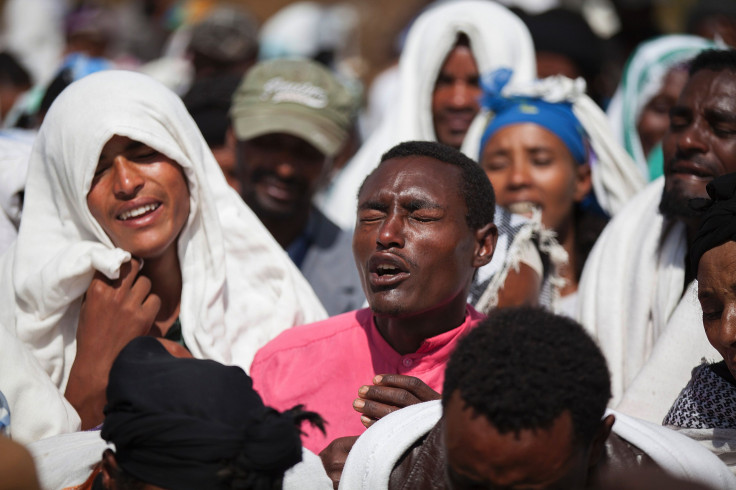Ethiopia Crackdown On Dissent: At Least 140 People Killed During Protests In Ethnic Oromia Region

Ethiopian authorities have killed at least 140 people during a bloody crackdown on dissent in recent weeks in the central Oromia region, activists and rights groups said. The Ethiopian government has admitted to killing dozens of protesters and has vowed to launch an investigation, but opposition leaders remain doubtful, Al Jazeera reported Sunday.
"The government is cautiously trying to avoid recognizing real problems in the society," Merera Gudina, an opposition leader, told the news site. "In fact, Ethiopian society is simply fed up with the regime — especially the youth. The young people have lost hope."
Since late November, massive anti-government demonstrations have erupted in towns across Oromia, home to the country’s largest ethnic group, the Oromo. The protesters and opposition members say they are fighting against an urban plan that would integrate infrastructure development in the capital of Addis Ababa with that of surrounding towns in Oromia. There are growing fears that the expansion will displace ethnic Oromo farmers from their land, activists said.
"Over the past eight weeks, Ethiopia's largest region, Oromia, has been hit by a wave of mass protests over the expansion of the municipal boundary of the capital, Addis Ababa," Felix Horne, a Horn of Africa researcher at Human Rights Watch, blogged Thursday. "Security forces have killed at least 140 protesters and injured many more, according to activists, in what may be the biggest crisis to hit Ethiopia since the 2005 election violence.”
Horne said opposition leaders have been arbitrarily arrested in recent weeks or are said to be under virtual house arrest. Ethiopian police Dec. 23 arrested Bekele Gerba, deputy chairman of the Oromo Federalist Congress, the largest legally registered political party in Oromia. Gerba was apparently hospitalized shortly after his arrest, and his whereabouts are unknown.
"By treating both opposition politicians and peaceful protesters with an iron fist, the government is closing off ways for Ethiopians to nonviolently express legitimate grievances," Horne said. "This is a dangerous trajectory that could put Ethiopia's long-term stability at risk.”
Oromia is the most populous of Ethiopia’s nine ethnically based federal states, with a population of at least 27 million people. The region has its own language, Oromo, which is distinct from Ethiopia’s official Amharic language, according to Agence France-Presse.
© Copyright IBTimes 2024. All rights reserved.











